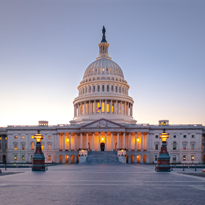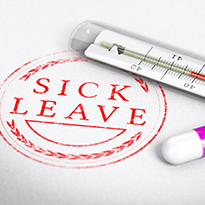April 2020 E-Newsletter |
 |
|
 |
| HOME
FIRM OVERVIEW
CLIENT SERVICES
INFO CENTER
RESOURCES
CONTACT
|
|
First and foremost we hope that all of you are healthy and safe at this time. As many of us celebrate Passover and Easter this week, we join in praying for those who have lost loved ones or have fallen ill with the Coronavirus.
The coronavirus pandemic is the greatest issue affecting our region at present, and many families and businesses are struggling to simply make it through these difficult times. At KVLSM, we understand how people are suffering, and we want you to know that we are here to help you at this moment of crisis.
Our staff is available to work with you remotely to help you with your needs, including addressing your tax issues and helping you apply for PPP loans for your small business.
KVLSM is dedicated to helping our community through this difficult time, so if you require any assistance,please call us at (516) 294-0400 or visit our contact page and we will work with you to address your needs. You can also learn more about what kinds of help are available to you by visiting our COVID-19 resources page.
|
|
 |

COVID-19 NEWS |
 |
 |
 |
U.S. Treasury Dept. Provides Clarity on the Paycheck Protection Loan Program
Small businesses and sole proprietorships can apply for and receive loans to cover their payroll and other certain expenses through existing SBA lenders. In addition, 1099 independent contractors can now apply. If you work as an independent contractor, you are by default considered to be a sole proprietor in the eyes of the IRS.

|
 |
 |
 |
COVID-19 RESOURCES
As part of KVLSM's ongoing efforts to provide you with latest knowledge related to the financial impact of COVID-19, please find the following resources from municipal, state, and governmental agencies. Resources include: Relief Bill, Internal Revenue Service, Centers for Disease Control, Small Business Administration and more.

|
 |
 |
 |
The Coronavirus Aid, Relief, and Economic Security Act ("CARES Act")
On Friday, March 27th, President Trump signed into law the Coronavirus Aid, Relief and Economic Security (CARES)Act . The nearly $2 trillion relief package is intended to supplement previous acts of the Federal and State governments, including the Family First Coronavirus Response Act.

|
 |
 |

CPA NEWS |
 |
 |
 |
New Retirement Rules
Congress capped off last year by passing the Setting Every Community Up for Retirement Enhancement (SECURE) Act as part of a larger spending bill. This is the biggest change in retirement saving rules in more than a decade.

|
 |
 |
 |
Exploring Trusts For Your Estate
While the federal estate tax basic exclusion amount has risen dramatically in recent years, some states have not followed suit by raising their exemptions. Even with higher current exemptions, the future of taxes is unpredictable, so you need a strategy to deal with potential estate taxes if you own significant assets.

|
 |
 |
 |
Loan Consequences
If your company offers a 401(k) plan loan, it can be among your most cost-effective options for short-term needs (five or fewer years). However, these loans come with potential drawbacks. Before you take money from your 401(k), understand all the consequences.

|
 |
 |
 |
A Qualified Opportunity
When you sell appreciated assets, you pay taxes on them in the year you realize capital gains. But when you invest in a Qualified Opportunity Fund (QOF), you defer capital gains taxes and potentially receive tax-free appreciation.

|
 |
 |
 |
Tax Deadlines Move to July 15
The April 15 federal income tax filing due date has been moved to July 15, the U.S. Treasury Department and IRS recently announced.

|
 |
 |
 |
New Law Requires Small Business to Provide Paid Leave
The Families First Coronavirus Response Act is a new law passed last week that offers COVID-19 assistance for both employees and employers. This new law provides businesses with fewer than 500 employees the funds to provide employees with paid leave, either for the employee’s own health needs or to care for family members.

|
 |
 |
Services
- Income Tax Preparation for all types of businesses and individuals
- IRS, State and Local Audit Representation
- Trust, Estate and Gift Compliance
- QuickBooks setup, support and training
- Business startup services
- Monthly bookkeeping
- Financial statements
- Family Office
- Nonprofit Administration
Additional Updated Information
March 2020 E-Newsletter
February 2020 E-Newsletter
|
 |
April 2020 Q & A
Q: My company has problems keeping employees, a problem that has escalated this year. What can I do?
A: Record low unemployment has made this a job seeker’s market, but a history of problems retaining employees might suggest that you take a new look at your company’s practices. Start by comparing your salaries, benefits and advancement opportunities to what your competitors offer. Poll your employees anonymously to ask how they view their work environment and work-life balance. Look at your benefits to find gaps you may be able to fill. Throughout the process and after, communicate frequently and effectively.
Q: I hired a person to do my housekeeping. Do I have to pay or deduct employment and other taxes for this person?
A:This will depend on a number of factors. According to the IRS, housekeepers and other household workers like babysitters and gardeners are your employees, if you control their work and how they do it. If you have a household worker you expect to pay more than $2,200 in 2020, you’ll typically have to pay 7.65% of cash wages for Medicare and Social Security taxes, and withhold the same amount (plus income taxes if they ask you to) from the employee’s pay. Talk to your tax professional to learn more.
|
|
 |
 |

SHORT BITS |
 |
 |
|
COMP BREAKDOWN
In September 2019, compensation costs for private industry workers averaged $34.77 per hour worked. Wages and salaries averaged $24.38 per hour worked while benefit costs comprised the rest. The cost of benefits was nearly 30% of total compensation, with health insurance comprising 7.5% and paid leave 7.2% of total comp. The average cost for life and disability insurance, though, was less than one-half of 1%.
BONUS TIME
If you are a private industry worker who received a bonus, you’re among the minority. About one of every 10 employees surveyed had access to end-of-year bonuses (generally performance-based) in 2019, while 6% had access to holiday bonuses (typically equal for all staff). Workers in natural resources, construction and maintenance fared better with year-end and holiday bonuses coming in at 15% and 12%, respectively. Service workers fared the worst.
|
EMPLOYERS SQUEEZED
Some employers are still finding rough going trying to fill job openings. According to the Bureau of Labor Statistics, there were 7.3 million job openings on the last business day of October 2019 and about 5.9 million unemployed people during October, a ratio of 0.8 unemployed people to job openings. Since January 2018, that ratio has ranged between 0.8 and 1.0.
UNPAID CARE
Some 40 million Americans ages 15 and over provide unpaid eldercare, and 58% of these providers are women. About one in four of the caregivers were between the ages of 55 and 64, 21% were ages 45 to 54 and nearly 18% were ages 65 and older. More than 8 million eldercare providers also had children living at home.
|
|
 |
|
|
(516) 294-0400
(516) 938-0491
|
 |
415 CROSSWAYS PARK DR.
SUITE C
WOODBURY, NY 11797 |
KVLSMCPA.COM
 |
|
© 2020 KVLSM LLP - CERTIFIED PUBLIC ACCOUNTANTS AND ADVISORS - NEW YORK
This e-mail and any attachments are intended exclusively for the individual or entity to which it is addressed. It may be confidential or legally privileged. If you received this
message in error or are not the intended recipient, you should destroy the e-mail message and any attachments or copies, and you are prohibited from retaining,
distributing, disclosing or using any information contained herein. Please inform us of the erroneous delivery by return e-mail. Thank you for your cooperation.
|






































